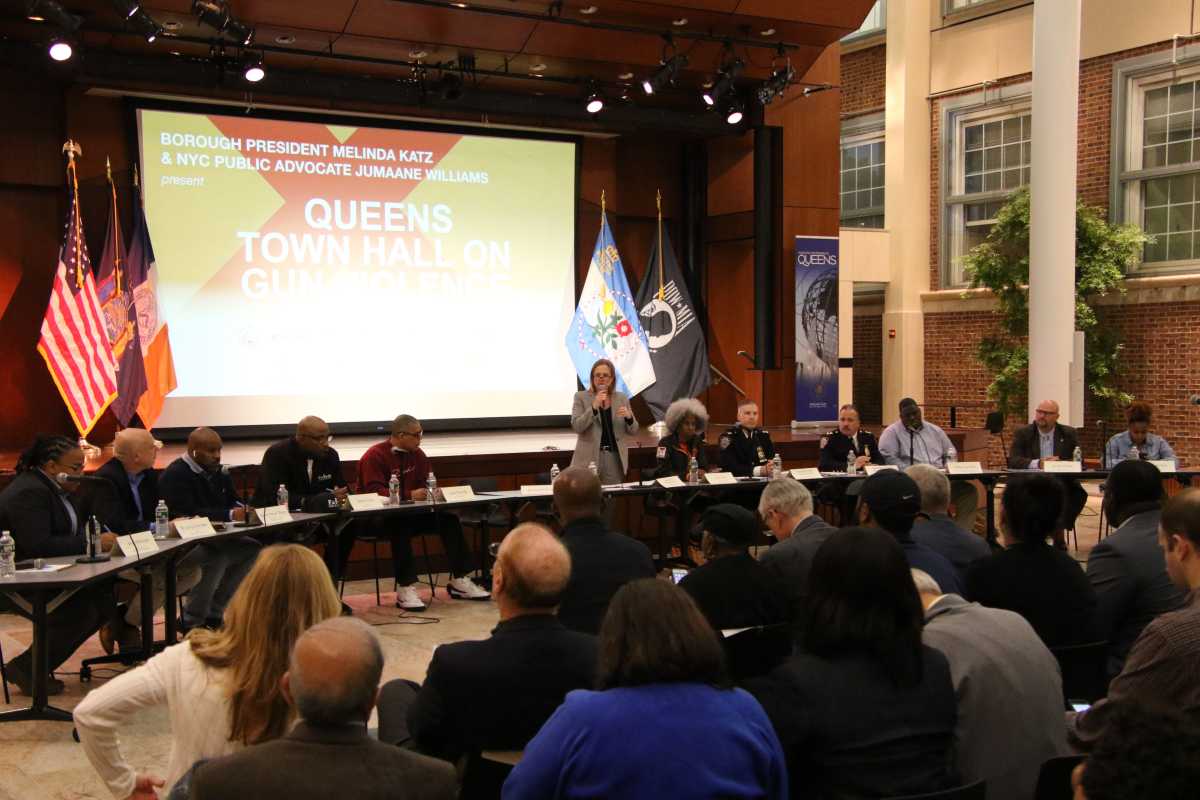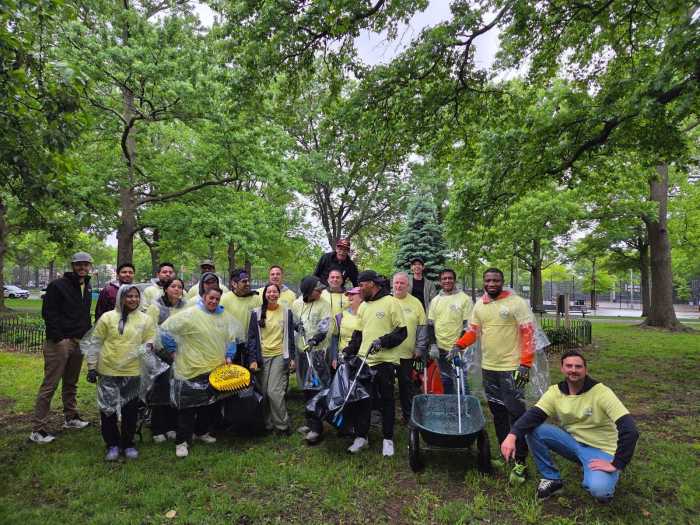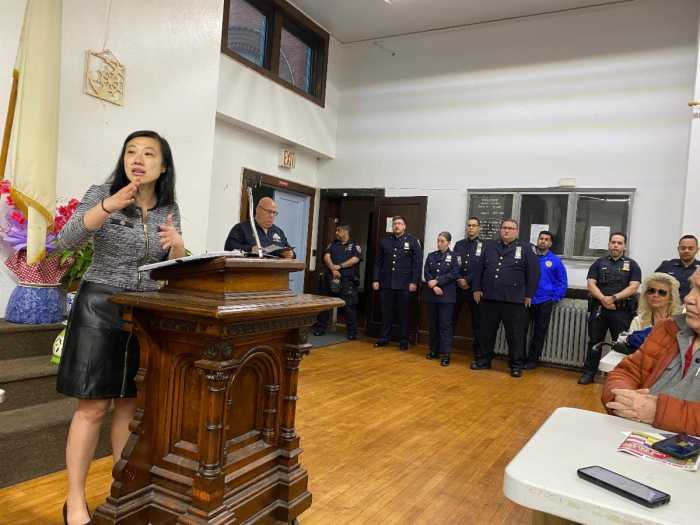In a borough where nearly half of its 2.3 million residents are immigrants, the tension is palpable as the Trump administration moves closer to making the proposed “public charge” rule change official, Queens Borough President Melinda Katz announced she will host a town hall meeting on the issue next month.
Calling it “the federal government’s latest attack on immigrant families and a move to restrict legal immigration,” Katz and the New York Immigration Coalition the event will take place on Tuesday, Sept. 17, at Borough Hall beginning at 5:30 p.m.
“This cruel, anti-immigrant policy will do little more than push immigrant families in Queens and across this country further into poverty and further into the shadows through the creation of an income test for the pursuit of the American Dream,” Katz said. “By forcing families to choose between legal residency and food on the table, medical care or a roof over their head, we are endangering not only their well-being, but that of all New Yorkers. This town hall will aim to dispel any myths and misconceptions about this rule, while counteracting the chilling effects it may have on communities.”
The town hall will be held just under one month before the federal government’s new immigration policy on who can be labeled a “public charge” is scheduled to go into effect Oct. 15, pending a legal challenge by a number of states, including New York.
Under current law, immigrants applying for entry into the United States or for lawful permanent residency can be denied and labeled a “public charge” for participating or being seen as likely to participate in various federal, state or local cash assistance programs or for receiving long-term institutional care. The federal government’s new guidance would significantly expand the criteria for who can be labeled a “public charge” to include immigrants who participate or seen likely to participate in federal benefit programs like the Supplemental Nutrition Assistance program, Medicaid or Section 8 housing assistance.
“While our communities continue to be under attack from the Trump administration, we will keep working to empower our communities with information and direct them to reliable, free resources to navigate changes to the public charge rule,” New York Immigration Coalition Executive Vice President Murad Awawdeh said.
In September, the Department of Homeland Security issued its proposal to significantly broaden the criteria it could use to label an immigrant applying for legal residency as a public charge. During the ensuing public comments period, more than 266,000 individuals submitted comments to the Federal Register, the overwhelming majority of whom were opposed to the proposed change, including Katz.
“The proposed change would disproportionately impact the borough of Queens,” Katz wrote. “We are the most ethnically and racially diverse county in the United States. Almost half (47.8 percent) of our population is foreign born. According to the Migration Policy Institute, 68,000 children in Queens County live in mixed-status families the highest proportion in New York state. I am deeply concerned about the threat of this new rule would have a chilling effect on these families temporarily in need of assistance, resulting in them opting not to apply for government help for their eligible relatives who are U.S. citizens.”
People will be forced to choose between their families needs and a Green Card, and Katz called that a vicious, anti-immigrant proposal that is un-American.
“Without SAP and housing assistance, children would fall behind in school,” Katz said. “In an emergency, constituents would be afraid to turn to their government for help. The proposed expansion of the public charge determination would compromise our ability to build public trust.”
The town hall will be held in the Helen Marshall Cultural Center in Borough Hall, located at 120-55 Queens Blvd.



































